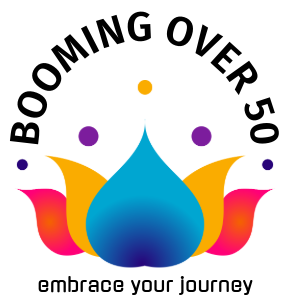Embracing the transition of an empty nest can be an opportunity for self-discovery and renewed purpose. Many parents find joy in this new chapter by investing in hobbies, relationships, or lifelong goals. According to a study from The Gerontologist, embracing change can lead to improved mental well-being and a stronger sense of identity during this stage.
Table of Contents
Introduction
As you navigate through various life stages, one significant transition that many women experience is the empty nest phase. This period, when children move out to pursue their education or start their adult lives, can be filled with a mix of emotions, from sadness to newfound freedom. Understanding this transition and embracing the changes can lead to a fulfilling chapter in your life. In this article, we’ll explore how to embrace change during the empty nest period, rediscover your passions, strengthen relationships, and find a new sense of purpose.
Understanding Your Emotions
Common Feelings During the Empty Nest Phase
The empty nest phase often evokes a complex array of emotions. It is common to feel sadness, loneliness, or even a sense of loss as the day-to-day routines shift. Many women find themselves reminiscing about the years spent raising their children, which can stir up feelings of nostalgia and longing. It’s essential to acknowledge these feelings as part of a natural transition. Some may also feel relieved and excited about having more time to focus on themselves and their interests. Recognizing these conflicting emotions can help you navigate this period more smoothly.
Additionally, it’s important to remember that these emotions are valid and shared by many. You are not alone in your feelings, and they may fluctuate from day to day. Some days may feel heavier than others, especially during milestones such as graduations or birthdays when your children may be absent. Embracing these feelings, rather than suppressing them, can facilitate healing and growth during this transformative time.

Embracing Change as a Natural Process
Change is a part of life, and learning to embrace it can lead to personal growth and fulfillment. The empty nest phase represents a unique opportunity to redefine your identity outside of being a parent. This transition can encourage you to explore new avenues, develop skills, and pursue interests that may have taken a backseat during the years of raising children. Accepting that change is inevitable—and often beneficial—can help mitigate feelings of anxiety and fear associated with this new chapter.
Moreover, embracing change positively can lead to increased resilience. When you view this time as an opportunity rather than a loss, you can foster a mindset geared towards growth. This shift in perspective will allow you to approach new experiences with enthusiasm and curiosity, opening doors to personal development and a richer life experience.
Rediscovering Yourself
Reconnecting with Hobbies and Interests
One of the most empowering aspects of the empty nest phase is the chance to rediscover hobbies and interests that may have been put on hold. Whether it’s painting, gardening, or cooking, engaging in activities you enjoy can provide fulfillment and joy. This newfound time is an opportunity to revisit passions that previously brought you happiness, allowing you to reignite your creativity and explore your individuality.
Consider creating a list of hobbies you’ve always wanted to pursue but never found the time for. Join a local class, whether it’s pottery, dance, or a book club, to meet new people and expand your social network. By investing time in yourself and your interests, you can find joy and satisfaction in activities that resonate with who you are.
Exploring New Passions and Activities
In addition to rediscovering old hobbies, the empty nest phase is an excellent time to explore new passions. Whether it’s taking up a new sport, learning a new language, or volunteering for a cause close to your heart, stepping outside your comfort zone can be rewarding. Engaging in new activities stimulates your mind and enhances your emotional well-being, adding a sense of adventure to your life.
Embrace the opportunity to learn something new. Many community centers and online platforms offer courses ranging from creative writing to photography. Exploring these new interests can rekindle your sense of purpose and inspire you to cultivate a more fulfilling lifestyle.

Building Stronger Relationships
Strengthening Bonds with Your Partner
With more free time available, the empty nest transition can serve as a golden opportunity to strengthen your relationship with your partner. When children leave home, couples often find themselves rediscovering each other as partners rather than primarily as parents. This transition can lead to deeper connections and conversations about mutual interests, aspirations, and dreams that may have been overlooked during the hectic years of child-rearing.
Plan regular date nights or weekend getaways to rekindle the romance and explore shared hobbies together. Emphasize open communication, where both partners can express their feelings about the changes and navigate this new chapter together. Building a solid emotional foundation during this time can result in a more profound connection and understanding between you and your partner.
Engaging with Friends and Family
In addition to focusing on your relationship with your partner, it’s essential to nurture connections with friends and family. The empty nest phase can feel isolating, making it crucial to reach out to your support network. Reconnect with friends you may not have seen in a while, explore shared interests, and make time for social gatherings. Having a solid support system can significantly ease the transition and bring joy to your life.
Consider organizing regular get-togethers, such as brunches or game nights, where friends and family can share experiences and provide mutual support. Engaging with loved ones can help combat feelings of emptiness and loneliness, reminding you that you are not alone in this journey.
Finding New Purpose
Volunteering and Giving Back
One way to find renewed purpose during the empty nest phase is through volunteering. Giving back to your community can provide a sense of fulfillment and connection to others. Whether it’s mentoring young people, working at a local food bank, or participating in environmental initiatives, volunteering allows you to contribute positively while also meeting new people.
Additionally, volunteering can offer a structured way to fill your time, ensuring that you remain engaged and connected. Research local organizations that resonate with your interests and skills, and consider how you can make a difference. The fulfillment gained from helping others often leads to a greater sense of purpose and happiness in your own life.
Exploring Opportunities for Personal Growth
The empty nest phase is a prime time for personal growth and self-discovery. Take advantage of this opportunity to invest in yourself and your future. Consider setting personal goals that encompass various aspects of your life, such as career aspirations, physical health, or emotional well-being. Setting clear objectives can motivate you to pursue new ventures and develop skills that enrich your life.
Additionally, consider engaging in personal development courses or workshops that focus on areas of interest or self-improvement. Whether it’s learning about mindfulness, financial management, or public speaking, these opportunities can help refine your skills and lead you towards a more fulfilling future.

Creating a Support System
Joining Support Groups and Communities
As you navigate the empty nest phase, consider joining support groups or communities where you can share experiences with others in similar situations. Many local or online groups focus on the empty nest transition, offering a safe space to discuss feelings and find resources. Sharing your journey with others can help normalize your experiences and provide valuable insights into coping mechanisms.
Engaging with these groups can also foster new friendships, creating a sense of belonging as you navigate this life change. Many women find comfort in connecting with others who understand the challenges and joys of this transition, making it easier to embrace change and find strength in shared experiences.
Seeking Professional Help if Needed
If you find that feelings of sadness or anxiety during the empty nest phase become overwhelming, seeking professional help may be beneficial. Therapists or counselors can provide tools and strategies to cope with emotional challenges effectively. They can also assist you in redefining your identity and purpose post-child-rearing.
Don’t hesitate to reach out for help; it’s a sign of strength, not weakness. A mental health professional can help you navigate your feelings and equip you with coping mechanisms that will serve you well as you transition into this new phase of life.
Practical Tips for Embracing Change
Establishing a Routine
Creating a new daily routine can provide structure and stability during the empty nest transition. Establishing a routine can help you manage your time effectively, ensuring that you engage in activities that bring joy and fulfillment. Begin by setting aside time each day for hobbies, exercise, socializing, and self-care. This structure can help reduce feelings of aimlessness and improve overall well-being.
Consider incorporating mindfulness practices into your routine, such as meditation or journaling. These activities can enhance emotional resilience and provide clarity as you navigate this significant life change.

Setting Goals for Your New Chapter
As you embrace this new chapter in life, take the time to set personal goals that excite and motivate you. Goals can range from simple daily tasks to larger aspirations, like travel plans or educational pursuits. Having clear objectives can provide a sense of direction and purpose, making it easier to transition into this new phase positively.
Break down your goals into achievable steps, and celebrate your accomplishments along the way. This will help you maintain motivation and remind you of your progress as you continue to embrace change and growth.
Conclusion
Celebrating Your Journey
The empty nest phase is a significant transition that offers both challenges and opportunities. While it may be difficult at times, embracing change and focusing on self-discovery can lead to incredible personal growth and fulfillment. By reconnecting with hobbies, strengthening relationships, finding new purpose, and creating a support system, you can navigate this new chapter with confidence and joy.
Looking Forward to the Future
As you move forward, remember that this phase is not an end but rather a beginning. Embrace the opportunities that lie ahead, cherish the memories you’ve created with your children, and look forward to the adventures that await you. By embracing change and focusing on your well-being, you can turn the empty nest transition into a beautiful journey of self-discovery and renewed joy.

FAQs
What are common emotions during the empty nest transition?
Common emotions during the empty nest phase include sadness, loneliness, nostalgia, and sometimes relief. These feelings vary from person to person and can fluctuate throughout the transition.
How can I rediscover my passions after my children leave home?
To rediscover your passions, take time to reflect on hobbies you used to enjoy or new interests you’ve always wanted to explore. Join classes or groups that focus on these activities to help reignite your creativity.
What steps can I take to strengthen my relationship with my partner?
Focus on open communication, plan regular date nights, and explore shared hobbies together. This time can help you reconnect as partners and deepen your emotional bond.
How can I find new purpose during this phase?
Consider volunteering, exploring personal growth opportunities, and setting achievable personal goals. Engaging in activities that align with your interests can provide fulfillment and a sense of purpose.
Is it important to seek professional help during the empty nest transition?
If feelings of sadness or anxiety become overwhelming, seeking professional help can be beneficial. A therapist can provide coping strategies and support as you navigate the transition.
Disclaimer: The content in this article is based on my personal experiences and is intended for informational purposes only. I am not a doctor or medical professional. Always consult with a healthcare provider before making any changes to your exercise routine or lifestyle, especially if you have any health concerns or conditions.
My mission is to celebrate the wisdom, resilience, and vitality of women as they navigate menopause, embrace life’s transitions, and step confidently into the next phase. Whether you’re exploring ways to stay fit, looking for health tips to prevent common issues, seeking inspiration for a fulfilling lifestyle, or simply wanting guidance on diet, I’ve got you covered.
Dive into our articles on fitness, health, lifestyle, nutrition and more to find the support and insights you need!


